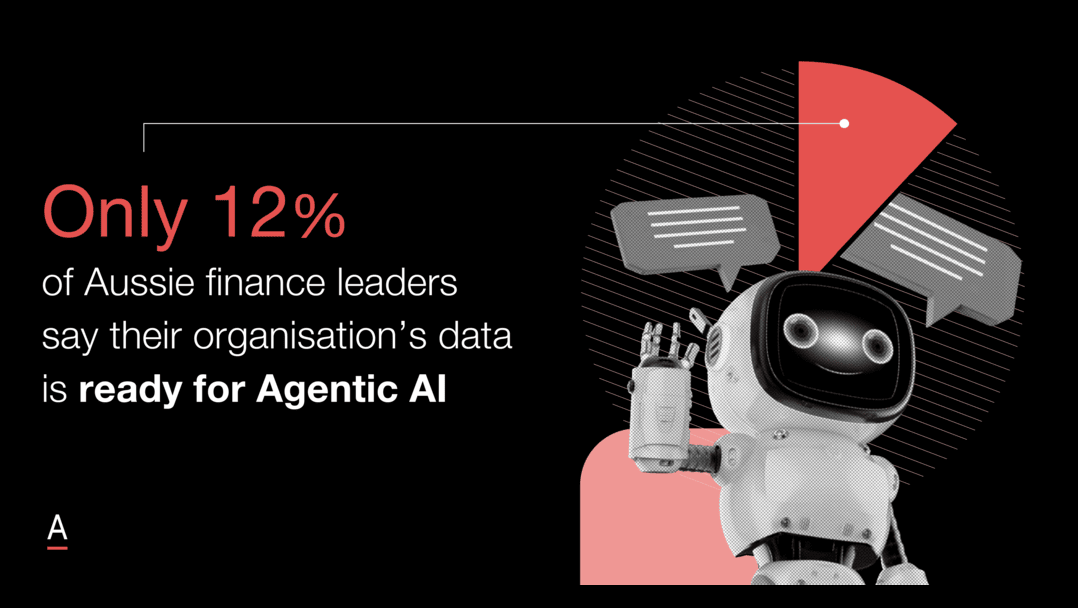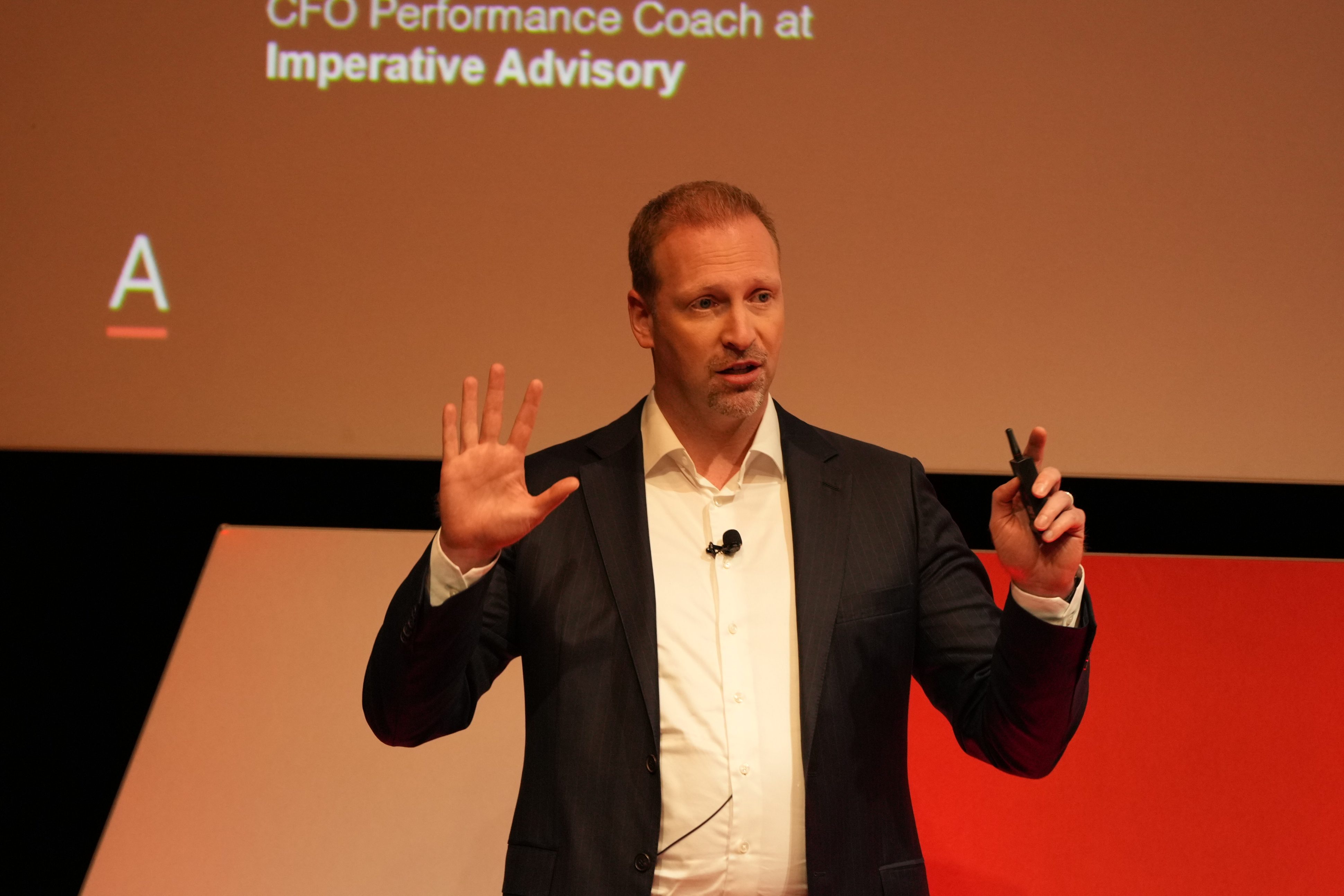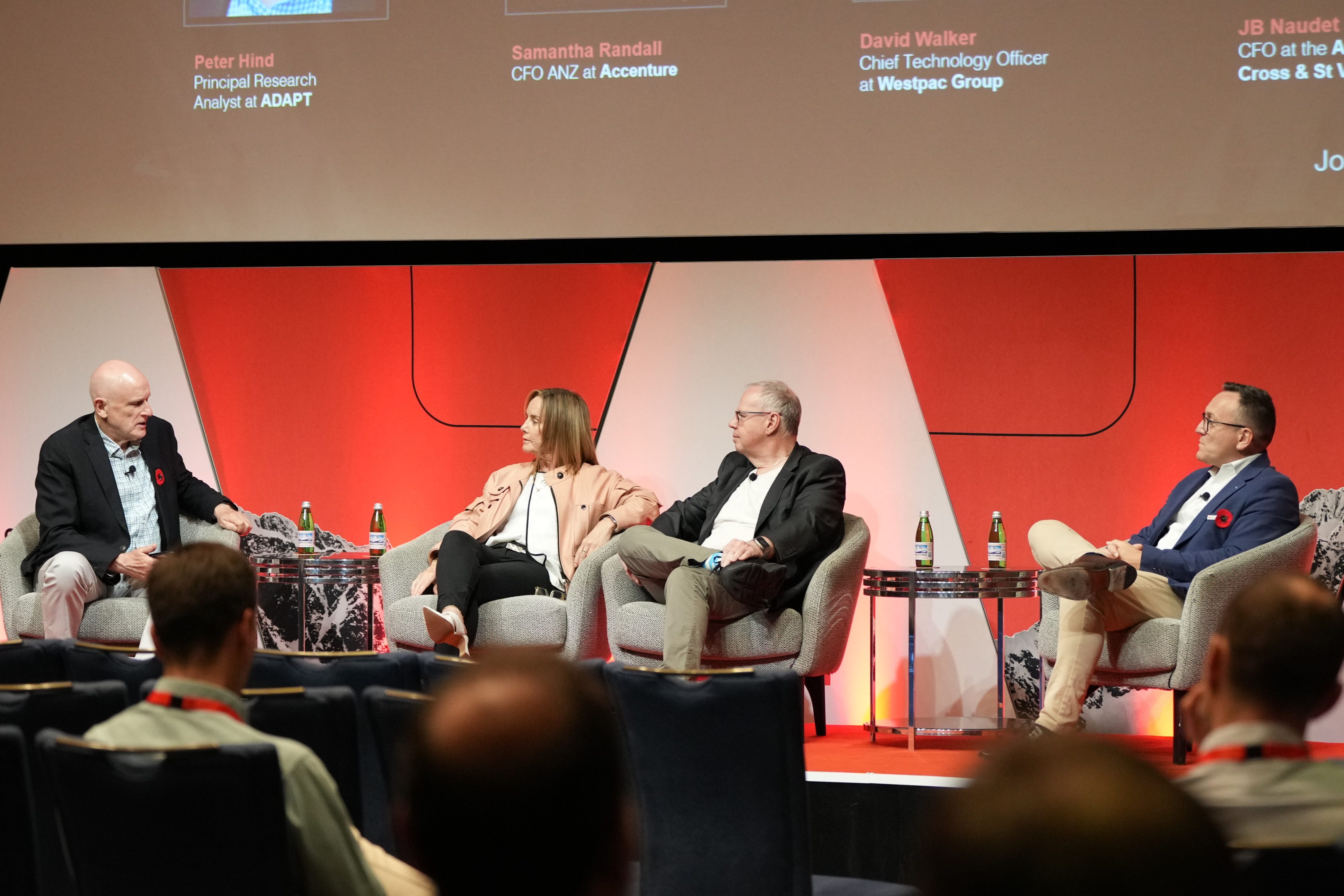CFO Edge Panel: The CFO Role to Boost Productivity, Modernise and Transform
In this panel discussion, Peter Hind - Principal Research Analyst at ADAPT, leads the discussion on the role of CFOs in boosting productivity, particularly in the context of Australia's current challenges. The discussion begins by highlighting Australia's ranking in productivity on the OECD list and the need for improvement.In this panel discussion, Peter Hind – Principal Research Analyst at ADAPT, leads the discussion on the role of CFOs in boosting productivity, particularly in the context of Australia’s current challenges.
The discussion begins by highlighting Australia’s ranking in productivity on the OECD list and the need for improvement.
Francine Hackett – VP, Finance & Operations at Pearson emphasises that CFOs have a unique viewpoint, sitting across the whole organisation, and can identify areas for productivity improvements. She stresses the importance of leading by example and supporting the implementation of changes.
Jenny Saliba – CFO, Wealth & Capital Markets at Australian Unity talks about the CFOs role as a strategic business partner and the challenge of managing wellbeing, especially after the impact of COVID.
Greg Ritter – CFO and Head of Business Operations Australasia at JLL, discusses the potential for CFOs to be the poster child for automation within the organisation, given the structured processes in finance.
Barbara Galloon – Group CFO at Avis, shares her experience of implementing change in a multinational organisation, emphasising the importance of standing firm on certain decisions and leveraging global resources while also pursuing local opportunities.
The conversation then shifts to the value that finance generates for an organisation. Francine highlights the evolving role of finance beyond traditional bean counting, emphasising its strategic significance.
Jenny stresses the CFOs role in converting strategy into actionable plans and energising teams, especially in a hybrid working environment. Greg underscores the need for finance to support the business in maximising its performance.
Bringing teams on a journey of change, especially when implementing automation is crucial. Greg highlights the need to set expectations and showcase how automation benefits the broader organisation.
Barbara wants critical thinking skills and an inquisitive mindset in the modern finance department.
The role of AI in finance, includes the potential to streamline processes, free up time, and enhance efficiency. It should include an audit trail and critical evaluation of AI-generated outputs.
Hiring and retaining talent in the finance department has seen a change in the expectations of new hires and the need for a diverse set of skills in the modern finance team.
CFOs should lead by example, implement the right risk frameworks, and make measured risk decisions aligned with the overall strategy of the organisation.
Key Takeaways:
- Automation and AI for productivity: CFOs play a crucial role in driving productivity through the implementation of automation and AI. Automation can streamline repetitive tasks within finance, such as back-office financial reporting. By implementing automation, finance teams can free up time to focus on more strategic, value-added activities.
- Talent acquisition and development: Recruiting and retaining the right talent is a challenge, especially in the context of digital transformation. It is important to hire individuals who not only possess traditional finance skills but also demonstrate critical thinking, inquisitiveness, and a willingness to adapt to change. CFOs should create an environment that fosters continuous learning and growth, showcasing the value of diverse skill sets and promoting a collaborative approach.
- Balancing Risk and Innovation: CFOs need to manage risks associated with innovation, particularly in the context of AI. The need for guardrails around AI implementation is essential to ensure ethical considerations, privacy, and a clear audit trail.

































